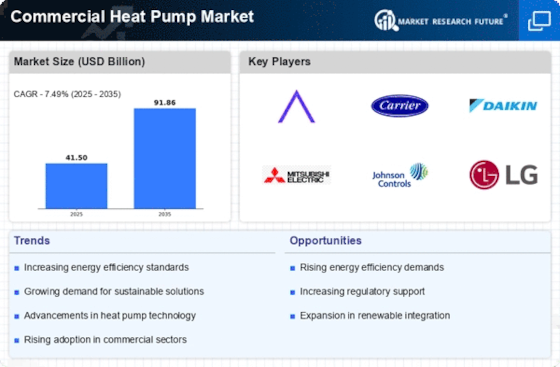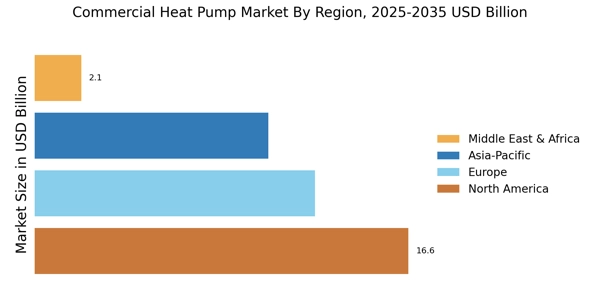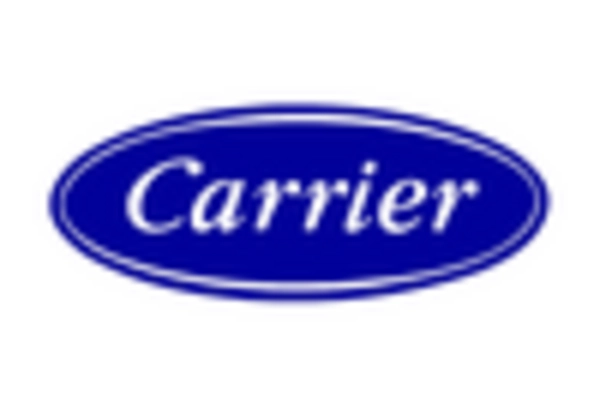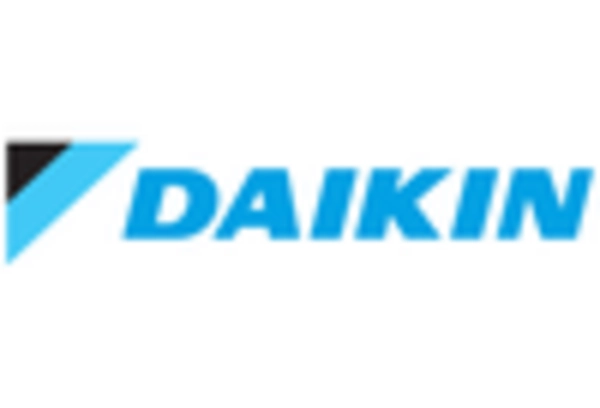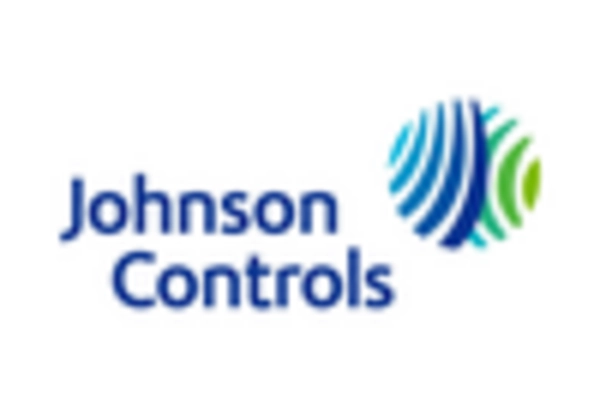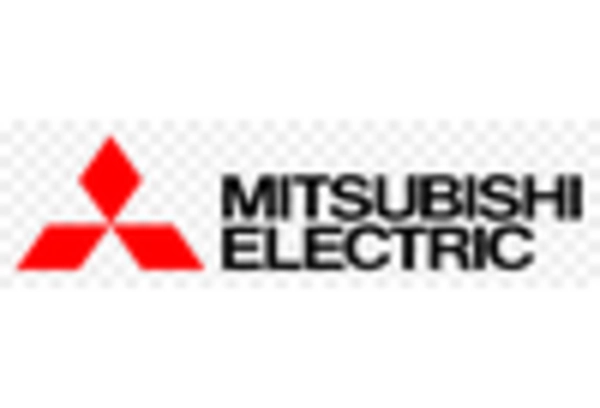Rising Energy Efficiency Standards
The Commercial Heat Pump Market is experiencing a notable shift due to the increasing energy efficiency standards imposed by various regulatory bodies. These standards are designed to reduce energy consumption and greenhouse gas emissions, compelling businesses to adopt more efficient heating solutions. As a result, heat pumps, which are known for their energy-saving capabilities, are becoming a preferred choice. In fact, the market for energy-efficient heating solutions is projected to grow significantly, with estimates suggesting a compound annual growth rate of over 10% in the coming years. This trend indicates a strong alignment between regulatory frameworks and market demand, driving the adoption of commercial heat pumps.
Increased Focus on Indoor Air Quality
The Commercial Heat Pump Market is also influenced by the heightened awareness surrounding indoor air quality. As businesses strive to create healthier work environments, the demand for heating systems that improve air quality is on the rise. Heat pumps, which can provide both heating and cooling while filtering air, are well-positioned to meet this need. Market trends indicate that the demand for air quality improvement solutions is expected to grow, with a projected increase in the adoption of heat pumps that incorporate advanced filtration technologies. This focus on indoor air quality is likely to be a significant driver for the commercial heat pump market.
Growing Demand for Sustainable Solutions
The Commercial Heat Pump Market is witnessing a surge in demand for sustainable heating solutions. Businesses are increasingly prioritizing environmentally friendly technologies to meet corporate sustainability goals and consumer expectations. Heat pumps, which utilize renewable energy sources, align well with these objectives. The market data indicates that the adoption of heat pumps could potentially reduce carbon emissions by up to 50% compared to traditional heating systems. This growing emphasis on sustainability is likely to propel the market forward, as companies seek to enhance their green credentials while also benefiting from lower operational costs associated with heat pump systems.
Economic Incentives for Energy Efficiency
Economic incentives provided by governments and local authorities are significantly impacting the Commercial Heat Pump Market. These incentives, which may include tax credits, rebates, and grants, encourage businesses to invest in energy-efficient technologies. The financial benefits associated with adopting heat pumps can lead to substantial cost savings over time, making them an attractive option for commercial enterprises. Market data suggests that regions with robust incentive programs have seen a 30% increase in heat pump installations. This trend indicates that economic factors are likely to continue driving the growth of the commercial heat pump market, as businesses seek to capitalize on available financial support.
Technological Innovations in Heat Pump Design
Technological advancements are playing a crucial role in shaping the Commercial Heat Pump Market. Innovations in heat pump design, such as variable speed compressors and advanced control systems, are enhancing the efficiency and performance of these systems. These improvements not only lead to better energy savings but also increase the overall reliability of heat pumps. Market analysis suggests that the integration of smart technologies into heat pump systems could lead to a 20% increase in efficiency. As businesses seek to optimize their heating solutions, the demand for technologically advanced heat pumps is expected to rise, further driving market growth.


